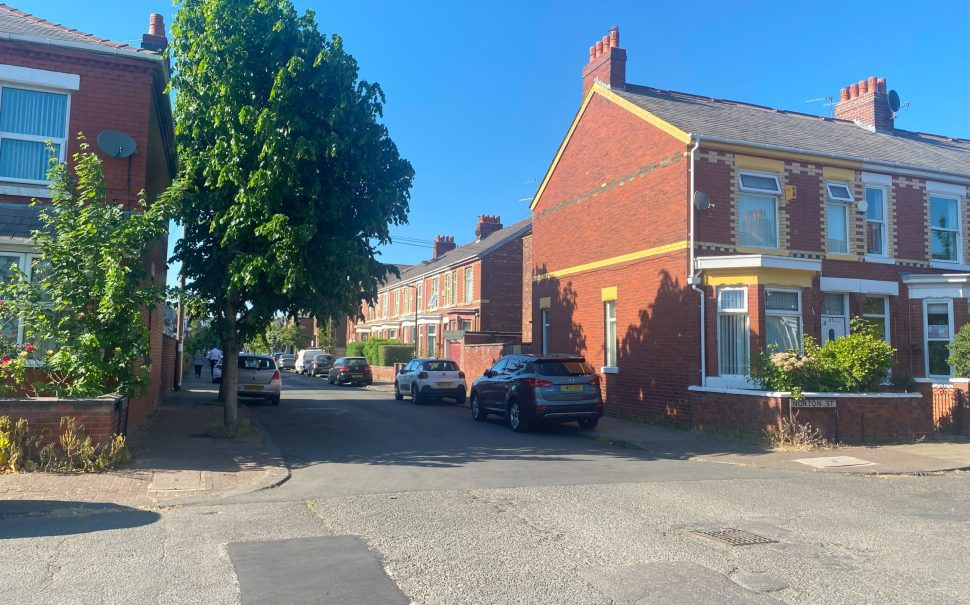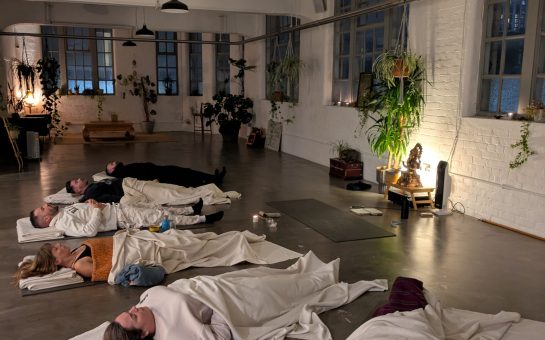Private rents in Trafford have almost doubled in ten years, making it now the most expensive place to live in the north, according to new data from the ONS.
In March 2025 the southern borough of Greater Manchester experienced the fourth highest yearly increase in private rental prices in the UK – only Newport, Broxbourne and Slough registered higher.
Average monthly rent in Trafford is now £1322, up £172 from the year before at £1150.
Trafford became the area with the most expensive rents in all of the north of England, including Yorkshire and the Humber, in August 2024 after an increase of £22 a month on average propelled it over Manchester’s rates.
Freelancer Tom Cantoni pays £600 a month towards a four person house share in Altrincham, where the total rent comes to £2400.
He’s lived in the Manchester area for six years, and said: “I’ve certainly noticed in the time I’ve lived here the rents are going up £200-£300.
“It’s a lot, we’re at a time where we all know what’s happening with the economy, we all know people’s wages are not going up at anywhere near the amount that rent is going up, food bills are going up, price of clothes, everything is going up but wages aren’t.
“It can be a tricky situation to be in when that happens.”
Altrincham, in Trafford, is known as an affluent and expensive area. But a short drive away is Partington and Carrington where Trafford Council says 16.8% of households earn less than £10k/year.
Catoni said: “I do see a wealth divide. You can jump on a tram, go a few stops and it’s a different area.
“When you look at the areas, the infrastructure and housing, things are more run down in some areas. In Altrincham, you see houses that are detached, there’s more money, houses are bigger.”
He thinks that rents are rising in part because a competitive rental market means landlords only accept offers over the asking price, with his house share offering £200 over the requested rent to secure their current house after a long and difficult search.
Kate Bradley, a housing lawyer with Greater Manchester Law Centre, said that rising rents were a bigger problem even than no-fault evictions, which are set to be banned under the Renter’s Rights Bill, currently at the committee stage in the House of Lords.
Currently, landlords can increase rent to market rates and there is no nationwide system for private rent control, which Bradley recommended as a way to protect tenants.
She’s seen the extreme end of this lack of protection and told Mancunian Matters about a client, who she kept anonymous, who has experienced a £1000 increase to their rent in one month.
Bradley said: “It becomes a kind of race to the top of rent increases where if landlords think they can obtain more rent then they will try, and then often people can’t afford to pay their rent.
“We’re seeing a huge increase in the amount of debt that people owe.”
And why does she think the rents are rising?
Bradley said: “Because landlords have unfettered power to do so.
“There is nothing in any of our policy or law limiting them to be fair, for rent to be affordable or for rent to be capped. That enables them to continue to push rents up.”
Bradley herself has recently experienced a £150 increase to her rent, and said: “It’s really broken my love affair with my flat.
“It’s made me remember that I actually could at any time be forced to pay more or cause problems by a person who has arbitrary control over this space.”
Data from 2023 showed that Trafford residents had the second highest percentage of their income go towards their rents out of the Greater Manchester boroughs – in contrast to the lowest figure of 23.5% in Wigan.
National Residential Landlords Association head of policy James Wood said that landlords were putting the rent up in response to the mortgage rate changes that were brought into effect by Liz Truss’ government in 2022.
The NRLA works with landlords, providing support and guidance for the industry.
They said that due to the rising mortgage interest rates, some of their member landlords were actually making less profit than they had before rents were increased.
He said: “It wasn’t a case of landlords trying to enrich themselves. They were just complying with their mortgage rates or with their mortgage conditions, but still trying to mitigate it as much as they could.
“They tend to want to keep it as low as they possibly can. But external factors around the cost of living are really impacting landlords as well, and so they feel like they have to increase the rent.”
He doesn’t think that the Renter’s Rights Bill is a solution, and said that it did not strike the right balance to look after good landlords and that many of their members have concerns that they will have to sell up.
But Wood is optimistic about the future, saying that as the post-2022 mortgage market adjusts, rents are likely to stabilise again.
In response to Kate Bradley’s suggestion for rent control, he said: “Rent controls are one of those things that are really well intentioned and really dangerous, because what tends to happen is that it leads to a reduction in the supply of homes that are available.”
ACORN tenants union Manchester branch chair Stephen Cripps has been a member of the organisation for four years, during which time the average rent in Trafford went up by almost a third.
But despite the change in cost he hasn’t noticed much difference in the nature of the work he does.
He said: “There are structural issues underlying it, as long as homes are treated as assets you’re going to have people trying to squeeze as much profit out of those as possible.
“We’d want to put to [landlords]: Are you aware of the pain you cause people?
“You’re sold this passive income and try not to think about what is the actual impact on the housing market and the availability of houses to people?”
If you or someone you know is struggling to pay a sudden rent increase, then Shelter or Citizen’s Advice can provide advice on how to proceed.
Image credit: Roma Robinson




